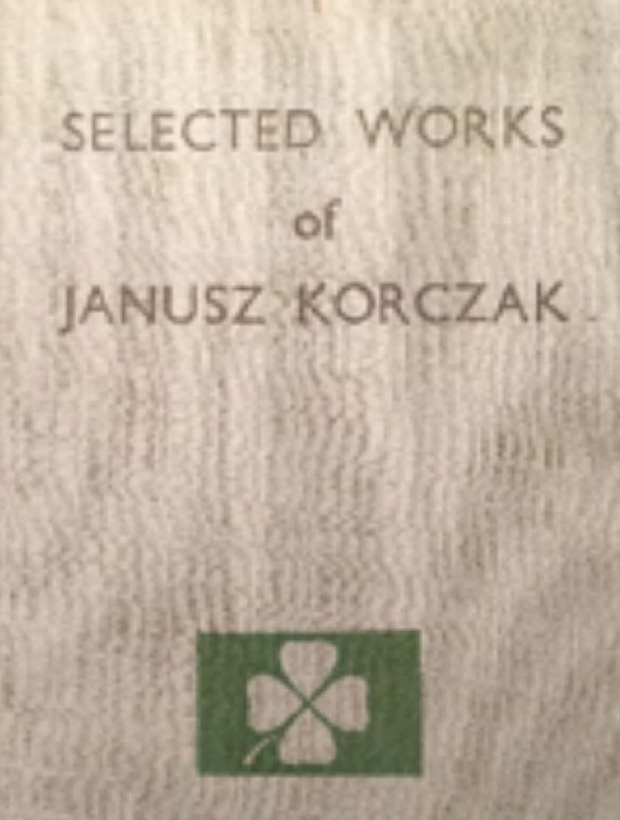Janusz Korczak was the pen name of Henryk Goldszmit, a man still very much admired in his native Poland, Israel, Germany, and the Netherlands but little known in North America. This is an extraordinary pity, as his philosophy of teaching and raising children are as important today as they were during the first half of the twentieth century, when Korczak put them in place. In North America, he is best remembered for his Ghetto Diary, which he composed while he was incarcerated in the Warsaw Ghetto during the Nazi German occupation of Poland and shortly before he led the orphans in his care to the transport that would take them all to Treblinka and certain death. Although he was offered many times the chance to escape the Ghetto, he refused, promising to stay with the children he cared for - "One does not abandon a child in need." More has been written about Dr. Korczak elsewhere on the Internet; for a comprehensive biography, I heartily recommend Betty Jean Lifton's excellent biography, "The King of Children."
As poignant as Korczak's final moments are, the Old Doctor (as he was sometimes known) is much more than a memorial, a statue. His work is a living philosophy, important reading for teachers, parents, and anyone else who cares for or about children. Sadly, precious little of this great man's work is available in English. Aside from the "Ghetto Diary," one can still find translations of his most famous children's novel, "King Matt the First," and "When I Am Little Again" and the "Child's Right to Respect." His most important work, How to Love a Child, is available in translation only in this volume and as a collection of quotations in two volumes by Sandra Joseph. This volume, therefore, is of immense historical significance to English-language readers. (Many of Korczak's works have been translated into German, French, Dutch, and Hebrew.)
Back in 1967, a University of California, Berkeley, professor named Martin Wolins realized this gap and arranged for this translation of Wybor Pism by Jerzy Bachrach. Included is a translated introduction by Igor Newerly, who worked with Korczak for many years. It is interesting to note that while other volumes on Korczak were published in 1978, on the centennial of his birth, this volume was issued on the 25th anniversary of his death at the hands of the Nazis. Unfortunately, this precious volume was printed in very limited numbers - colleagues of mine estimate about 500 to 600 copies, most of which are hidden in academic libraries. Therefore, I count myself as extremely fortunate to have located a copy on eBay. As an admirer of Janusz Korczak, it is my plan to collaborate with two other scholars to make these works available again.
In "How to Love a Child," Korczak gives his best description of his pedagogical practices at his orphanage in Warsaw, including his famous Children's Court, a system of peer review of infractions by children and staff that included ways for the offender to repair damage to the community. He also discusses his equally famous Summer Camps, which enabled inner-city children to experience the wonder of nature in a cooperative setting. In this work, as well as in "The Child's Right" to Respect, Janusz Korczak discusses the importance of seeing everything from the perspective of the child, to listen to the child and respect him as a human being, not merely as a future adult.
The other essays are "Educational Factors," "On the School Newspaper," "The Special School," "Forgive Me, Children," and his "Memoirs."
More than bronze statues, commemorative stamps, and medallions, Korczak's writings are the foremost monument to this great and gentle man.
Daniel L. BerekEducator and Writer

